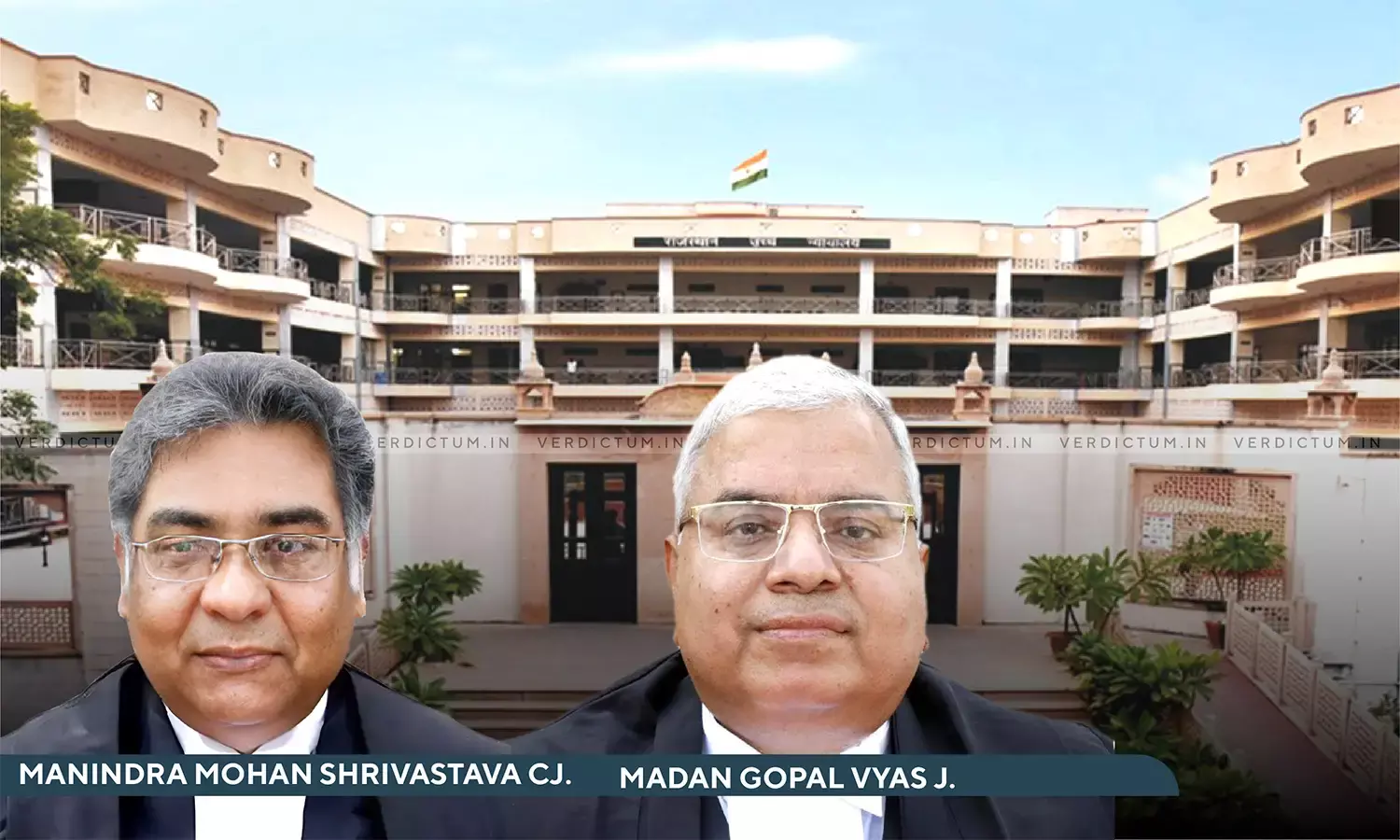Hindu Deities Can Hold Land In ‘Jagir’ Only If Cultivated Directly By Shebait Or Pujari Or Their Hired Labour: Rajasthan HC
The Rajasthan High Court observed that the Hindu deities can hold land in ‘Jagir’ only if the land is cultivated directly by Shebait/Pujari or their hired labour.
The Court clarified that if the land was given for cultivation to a tenant or was cultivated through a tenant, such land became Khatedari of the tenant and on which the tenant had direct relations with the State.
The Court was hearing an appeal against the order of the Single Judge where the Court upheld the orders passed by the Revenue Appellate Authority as well as the Sub-Divisional Officer in the matter of dispute relating to the appellant's status qua the land in dispute.
The bench of Chief Justice Manindra Mohan Shrivastava and Justice Madan Gopal Vyas observed, “The Jagirs Act of 1952 took away all the rights of the Jagirdars including Hindu Idol (deity) as Dolidar or Muafidar on the land cultivated by the tenants. They ceased to have any right on such land as Shebait/Pujari could not have any independent status. Such tenancy could also not be regarded as sub-tenant of Hindu Idol (deity) to confer any right on the Hindu Idol (deity).”
Senior Advocate J.L. Purohit appeared for the Appellant and AAG SS Ladrecha appeared for the Respondent.
Brief Facts-
The case involves a parcel of land that was initially recorded in the appellant's name. The Sub-Divisional Officer ordered the land to be recorded in the name of Doli Banam Mandir Charbhujaji striking off the appellant's name. This order adversely affected the appellant's tenancy rights, prompting a revenue appeal, which was partly allowed. The order to record the land in the name of the Mandir was upheld, but it was ruled that dispossessing the appellant required action in a competent Court. Subsequent appeals were dismissed, leading to the current Appeal.
The Court mentioned the decision of the Full Bench of the Rajasthan High Court in the case of Tara & 35 Ors. Vs. State of Rajasthan & Anr. [2015(3) WLC (Raj.) 548] where the issue regarding the rights of the persons, who were cultivating the land of deity as tenants, came up for consideration.
The Court noted the legal position in the above-mentioned case to determine whether the appellant was entitled to be recorded as khatedar (statutory tenant) after coming into force of the Act of 1952 and resumption of Jagir and observed, “that the Hindu idol (deity) could only hold such lands in Jagir, which Shebait/Pujari was cultivating for such deity, having direct nexus with the agricultural operations either themselves or through hired labour or servant engaged by them so as to claim to be Khudkasht and to be protected from resumption/acquisition under the Jagirs Act of 1952 which has been clarified as legal position that if the land was given for cultivation to a tenant or was cultivated through a tenant, such land became Khatedari of the tenant and on which the tenant had direct relations with the State.”
The Court said that if it is found that the appellant was cultivating the land as a tenant at the time of the resumption of Jagir under the Act of 1952, the legal consequences would be that he would acquire the status of a tenant. However, according to the Court if it is found that the cultivation was not as a tenant but either he was Shebait or Pujari or a labour hired by them or a person employed by them, then in such a case, he would not be entitled to be recorded as Khatedar upon resumption of Jagir under the Act of 1952.
The Court was of the opinion that the aspect is required to be examined by a proper enquiry by the revenue authority as the legal position with respect to the issue was only settled in 2015 after Tara & 35 Ors. Vs. State of Rajasthan & Anr. [2015(3) WLC (Raj.) 548].
Accordingly, the Court set aside the order of the Court and other authorities and allowed the appeal.
Cause Title: Joga Ram v. The Board Of Revenue Of Rajasthan, Ajmer (Raj.) (Neutral Citation: 2024:RJ-JD:26785-DB)
Appearance:
Appellant: Sr. Adv. J.L. Purohit, Adv. Shashank Joshi and Adv. R.S. Bohra
Respondent: AAG SS Ladrecha, Adv. Kshitij Vyas and Adv. Deepak Suthar




